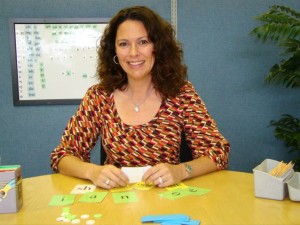
Dyslexia Help at Home
Parents are always asking me what they can do to help their dyslexic child. My first response is to most importantly get the child into an Orton-Gillingham program that will give them the necessary skills for reading, writing and spelling improvement. This will need to be done by a trained specialist and should be the number one priority for the dyslexic child.
Keep in mind that the trained dyslexia professional is helping your child by doing the difficult work for you. They are doing reading activities and skill training. It won’t necessarily be for fun and pleasure. So, this is the perfect time that you as a parent get to just read together with your child for fun and pleasure. This is what you the parent can do to give your child the dyslexia help at home they need.
Most likely you will be working with your child after school when they are tired and less receptive to learning and when you, too, are not at your most energetic or patient, therefore, I recommend that you read together with your child for at least thirty minutes each evening making it fun and not a chore for either of you. Evenings spent reading together build a lifelong pattern of enjoyment. A child who avoids reading is among those most in need of practice and guidance, and is especially helped by your reading aloud with him.
When reading for pleasure, allow your struggling reader to relax and listen attentively without being expected to read. You should still encourage your child to sit next to you, so he can see the pages of the book as you read. If you are helping your child with a book that must be read for school, encourage your child to participate by taking turns reading; you can ask your child to read a sentence or a paragraph, then read several paragraphs yourself, then let your child have another turn.
In books with a lot of dialogue, another technique for shared reading is to let your child take the role of one (or more) or the characters, reading the quoted words for that character. This is also a good opportunity to help your child focus on punctuation, such as quotation marks, commas, periods, exclamation points, and question marks. Many children with dyslexia do not understand what punctuation means, and they tend to ignore or disregard punctuation marks when reading because they are so focused on trying to decipher the letters and words. With oral reading, punctuation takes on added significance, as it provides information about when the reader should pause and the intonation that should be used.
When your child is reading aloud, do not interrupt to correct mistakes that do not change meaning, such as reading “mom” for “mother.” Frequent interruptions will cause your child to lose confidence and make comprehension more difficult. If your child stumbles over a word, simply tell her what it is. Do not try to use teaching techniques such as having her sound out words at this time. Instead, enjoy the story together, discuss the plot, and praise your child for her efforts when she reads aloud and is able to figure out some words on her own.
Your child may find it helpful to hold an index card or ruler under each line of text as he reads. This will help him stay focused on the text. It is also possible to purchase a reading guide with a colored filter in the center, which is designed so that your child can move it down the page as he reads.
Some children prefer fiction while others prefer nonfiction. By pairing them, your child will be exposed to both genres. Your child will also love discussing these books together with you.
Because a child with dyslexia needs very individualized and specialized reading help, I recommend that parents become the child’s biggest helper. Teaching a child with dyslexia how to read is a complex task, but with a loving touch and good humor, you the parent can most definitely accelerate your child’s progress.
Learn more about the New PRIDE Reading Program
____________________________________________________________________________________

Karina Richland, M.A. is the Founder of PRIDE Learning Centers, located in Los Angeles and Orange County. Ms. Richland is a certified reading and learning disability specialist. Ms. Richland speaks frequently to parents, teachers, and professionals on learning differences, and writes for several journals and publications. You can visit the PRIDE Learning Center website at: www.pridelearningcenter.com
